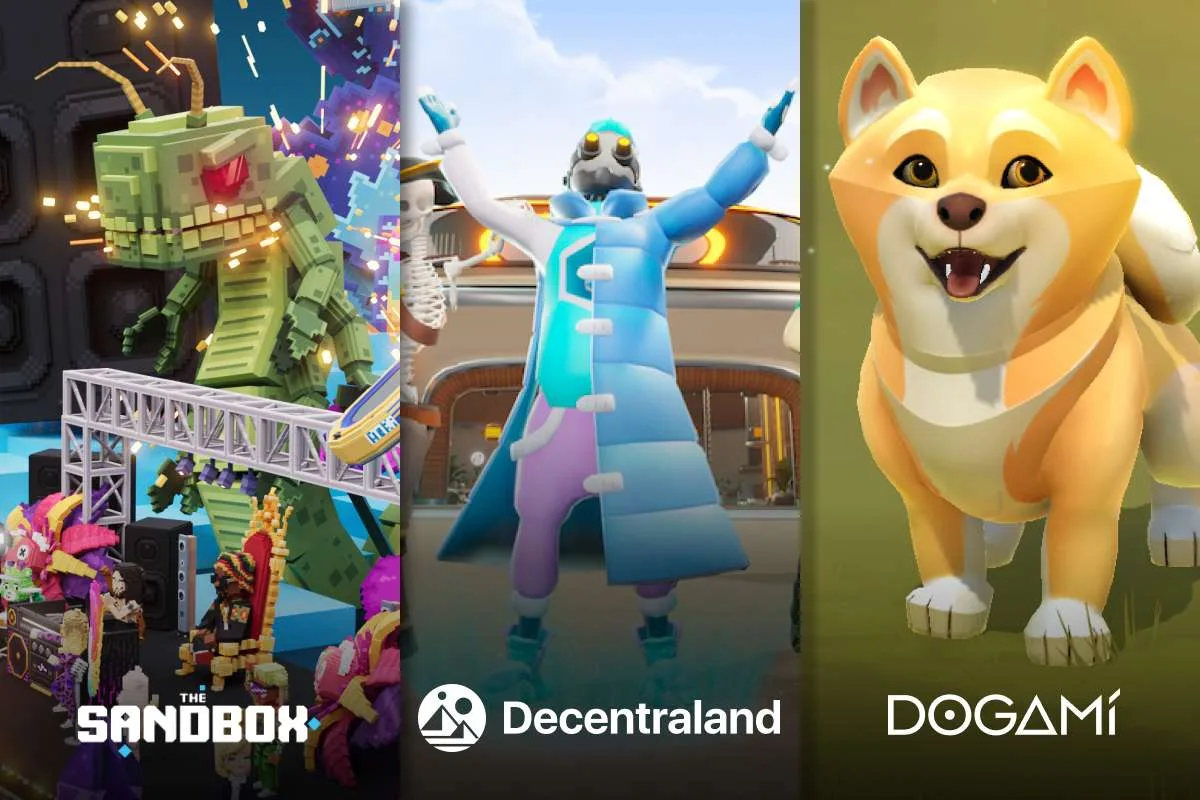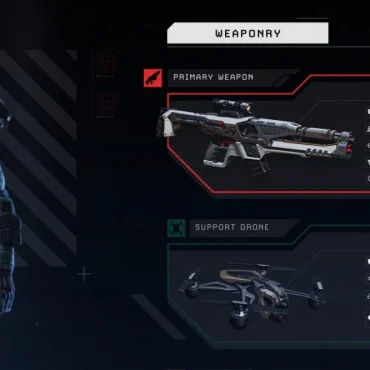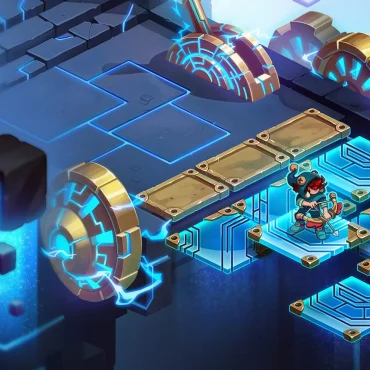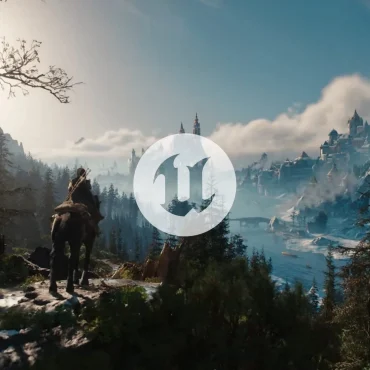Despite years of debates and industry controversies, Unity remains a dominant force in the game development world. Over half of all projects are made through Unity game engine development; everything from Steam games and mobile releases to web games and AR/VR content. Unity’s remarkable power and accessibility have birthed some of the most memorable and unique games that have captured our hearts.
But what truly makes Unity so beloved and universally adopted? Let’s explore what’s so compelling about this tool that makes it the go-to engine for developers worldwide and examine the Unity engine benefits.

Superb performance
One of the most substantial benefits of Unity lies in performance optimization. Unity introduced the game-changing Data-Oriented Technology Stack (DOTS) to effectively leverage a device’s resources and eliminate bottlenecks in object-heavy scenes. DOTS allows for better memory management and more efficient CPU usage by structuring data in a way that optimizes processing power. Paired with the Scriptable Render Pipeline (SRP), developers can create smooth and consistent gameplay experiences across a wide variety of devices. Through SRP, Unity benefits from greater customization and control over the rendering pipeline, enabling developers to tailor their games to achieve higher performance benchmarks and more sophisticated graphical effects.
Mobile platforms
Unity is inherently optimized for mobile game development, making it an ideal choice for creating engaging experiences on iOS and Android platforms. The Unity game engine supports lightweight builds that run efficiently on mobile devices, thereby enhancing performance and battery life. Unity’s extensive support for a diverse array of plugins and SDKs allows developers to seamlessly integrate unique features native to different mobile devices, from haptic feedback to AR capabilities. This versatility ensures that the games feel native to their respective platforms, providing an enhanced and tailored user experience.
Cost-efficiency
Unity empowers development teams to achieve more with less. One of the notable Unity benefits is that the engine’s comprehensive tools allow smaller teams to operate effectively without requiring a high number of specialized roles, such as UI or animation programmers. This reduces overhead costs and accelerates the development cycle while maintaining high-quality output. Unity also offers a broad suite of development aids, including prefabs, templates, and built-in features that obviate the need for redundant coding and rework, further streamlining the production process.
Web3 support

Unity extends its prowess to the burgeoning field of Web3 and blockchain games. One of the key Unity engine benefits is its lightweight architecture combined with its native WebGL support enables the creation of web-based games that are both visually appealing and fast-loading. Furthermore, Unity is compatible with various blockchain protocols and networks, which allows developers to integrate blockchain functionalities such as decentralized asset management, player-owned economies, and NFTs directly into their games. This capability is a pioneering step, opening up new monetization models and interactive gameplay possibilities in the Web3 marketplace.
Engine versatility
The benefits of Unity extend to its flexible and highly adaptable architecture, suitable for a wide range of game genres and art styles. Whether developers are working on retro 2D platformers, complex real-time strategy games, or cutting-edge AAA 3D titles, Unity provides the necessary tools and features to support their creative vision. The adaptability of Unity ensures that developers can bring diverse and complex projects to fruition, regardless of scale. It embraces multiple art pipelines, from traditional raster graphics to modern physically-based rendering (PBR), accommodating every stylistic vision imaginable.
Licensing, financing, and distribution
Unity game engine employs a revenue-based licensing model that is advantageous for developers, particularly for startups and indie studios. The fees only come into effect when a game surpasses specific thresholds: $1,000,000 in gross revenue over the past 12 months and 1,000,000 in initial engagements. Once both conditions are met, developers pay either 2.5% of the monthly gross revenue or a Runtime Fee based on initial monthly engagements. This performance-based cost structure directly aligns with the success of the game, allowing developers to scale up operations sustainably. Note that the Runtime Fee does not apply to those using the Unity Personal plan.
Application beyond gamedev
Unity’s impact extends well beyond the gaming landscape. The benefits of Unity are evident as the engine’s powerful suite of tools is instrumental in creating VR/AR interactive experiences. These technologies are widely applied across various industries including oil and gas, energy, pharmaceuticals, sports, manufacturing, and executive training. For example, in the oil and gas sector, Unity is used to simulate complex drilling operations, providing immersive training environments for engineers. In healthcare, Unity enables the creation of intricate medical simulations that aid in both educational training for students and procedural rehearsals for surgeons.
Asset store
Unity’s Asset Store is a cornucopia of resources for game developers. Here, developers can find a plethora of pre-made content ranging from characters to sound effects, textures, scripts, and full game templates. This convenience eliminates the long hours that would otherwise be spent creating assets from scratch, thereby accelerating the development process. The Asset Store also provides a monetization avenue for artists, musicians, and other content creators, enabling them to sell their assets and reclaim time and resources. This diversity and accessibility make the Asset Store an invaluable resource.
Unity visual scripting
Unity’s visual scripting feature, introduced to make the engine more accessible to developers with limited coding skills, is another one of Unity benefits. This feature allows users to create game logic and scripts by combining nodes, thus eliminating the need to write code manually. Visual scripting facilitates rapid prototyping and makes the development process more intuitive, especially for designers and artists who might not be proficient in traditional programming languages. Although its performance might lag behind C# scripts initially, Unity is continually improving this aspect. A new visual scripting execution engine is in development, promising near-parity in performance with traditional C# scripts. This ongoing enhancement ensures that even non-programmers can contribute effectively to game development without hindering the game’s performance.
Cross-platform compatibility
One of the standout Unity engine benefits is its extensive cross-platform compatibility. Unity supports over 25 platforms, ranging from consoles like PlayStation and Xbox to desktop environments such as Windows, macOS, and Linux, as well as mobile operating systems including iOS and Android. This allows developers to build a game once and deploy it across multiple platforms with minimal modifications. Such wide-ranging compatibility ensures that games reach the broadest possible audience, maximizing market penetration and revenue potential. Unity’s cross-platform tools and features streamline the porting process, saving time and resources while ensuring consistency in game quality across different devices.
Community and support
Unity benefits also include a vast and active community, which is a significant asset to both novice and veteran developers. The Unity community contributes to an extensive repository of tutorials, forums, and documentation that can help developers troubleshoot problems and stay updated with the latest tips and best practices. Unity also hosts a range of events, conferences, and webinars aimed at fostering collaboration and innovation within the developer community. These resources create an enriching ecosystem that not only assists in technical problem-solving but also inspires creativity and innovation through shared knowledge and experiences.
Analytics and monetization tools
Another one of the benefits of Unity is its Analytics feature, which offers real-time data insights to help developers understand player behavior and game performance. By leveraging this data, developers can make informed decisions to optimize gameplay, increase user retention, and boost in-game purchases. Unity Ads and Unity IAP (In-App Purchasing) provide streamlined monetization options. These tools can be seamlessly integrated into games to generate revenue through ads and microtransactions, ensuring that developers have multiple avenues to profit from their creations.
Which games is Unity good for?

Unity is exceptionally well-suited for a diverse range of games. For 2D games, Unity offers robust tools and a flexible workflow, enabling the creation of platformers, puzzle games, and side-scrollers with ease. In the realm of 3D gaming, Unity shines with its capacity to handle complex environments and detailed character models, ideal for both AAA titles and indie projects. Additionally, Unity’s optimization features make it perfect for mobile games, ensuring smooth performance on iOS and Android devices. From immersive VR and AR experiences to web-based games leveraging WebGL, Unity’s adaptability supports virtually any game genre, ensuring developers can bring their unique ideas to life.
Unity game development with N-iX Games
At N-iX Games, we offer unparalleled technical guidance in game development, leveraging our extensive experience since 2012. Whether your project is built on Unity or Unreal Engine, our team provides strategic, technical, and creative insights to elevate the performance and creativity of your internal teams.
Our Unity projects: Speed Crew
Speed Crew is a collaborative effort between Wild Fields and N-iX Games. This fast-paced party game casts players as pit-stop mechanics, tackling repairs and navigating obstacles to keep racing cars in top condition. Featuring local and online multiplayer modes, complex game mechanics, an engaging storyline, and dynamic visuals with a retro flair, Speed Crew offers an exhilarating experience.
Our contributions to Speed Crew encompassed nearly every aspect of development: Unity game engine programming, design, art direction, UI/UX design, QA testing, and porting to Nintendo Switch, Xbox, and PlayStation, including the console certification process. We continue to refine the game based on player feedback, gearing up for new content updates to enhance player engagement even further.
Our Unity projects: The Bazaar
Tempo Storm, a prominent US-based esports organization uniting over 50 professional gamers, ventured into game development with their very first Hero-Builder game, The Bazaar. Seeking a reliable co-development partner with deep Unity game development expertise, they chose N-iX Games.
“Partnering with N-iX has been one of the best decisions we’ve ever made as a company. They’ve repeatedly shown themselves to be skilled, responsive, fast, and flexible.” – Andrey ‘Reynad’ Yanyuk, CEO of Tempo Storm.




